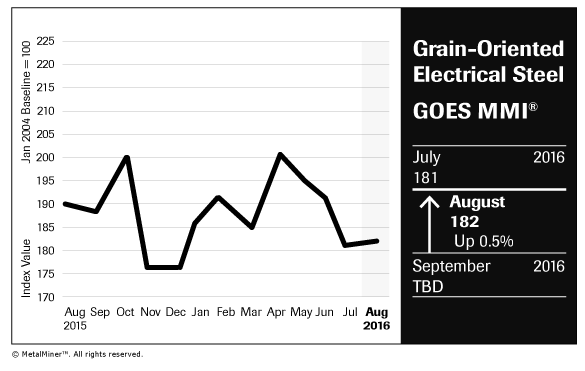Who is Kevin Hassett? Wolfe looks at the Trump ally tipped to become Fed Chair.
However, it appears unclear as to who will reap the benefits.
The story begins with the U.S. Grain-Oriented Electric Steel (GOES) trade case that resulted in no duties applied to imported products to the U.S. However, U.S. power equipment manufacturers moved to alternative sources all the same, importing wound and stacked cores instead of purchasing GOES from domestic sources.
Despite the unfavorable ruling for the U.S. domestic producers, other countries soon began filing anti-dumping cases.

Chinese producers Wuhan Iron & Steel Co. and Baoshan Iron and Steel persuaded the Chinese government to rule against Japanese, Korean and European producers of GOES. The Republic of Korea received final duties of 37.3%. The preliminary duties on Korea, however, had been 14.5%-29.5%.
The final duty rate, coming in significantly higher will likely shut down all Korean exports to China. With Japan receiving duties over 45%, both countries will no longer sell GOES into China.
According to a recent Reuters report, China imported over 120,000 metric tons of GOES of which over 95,000 mt came from Japan and Korea combined. Much of that material likely included the higher performing GOES grades. Japan had already started to withdraw from the Chinese market. Now China will need to find equivalent supply domestically which could limit GOES exports from China.
In the meantime, here in the U.S., a word of clarity on the cold-rolled coil dumping case – grain-oriented electrical steel was “specifically excluded from the scope of this investigation”.
U.S. GOES prices inched up slightly.
